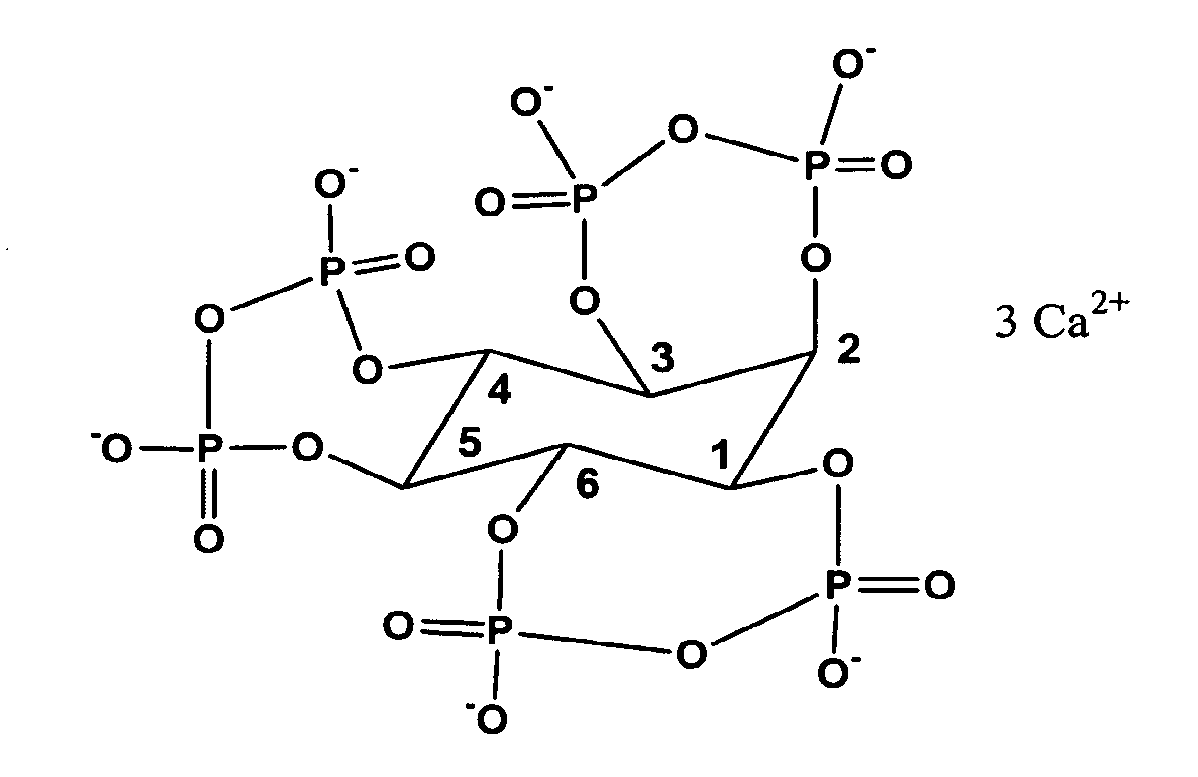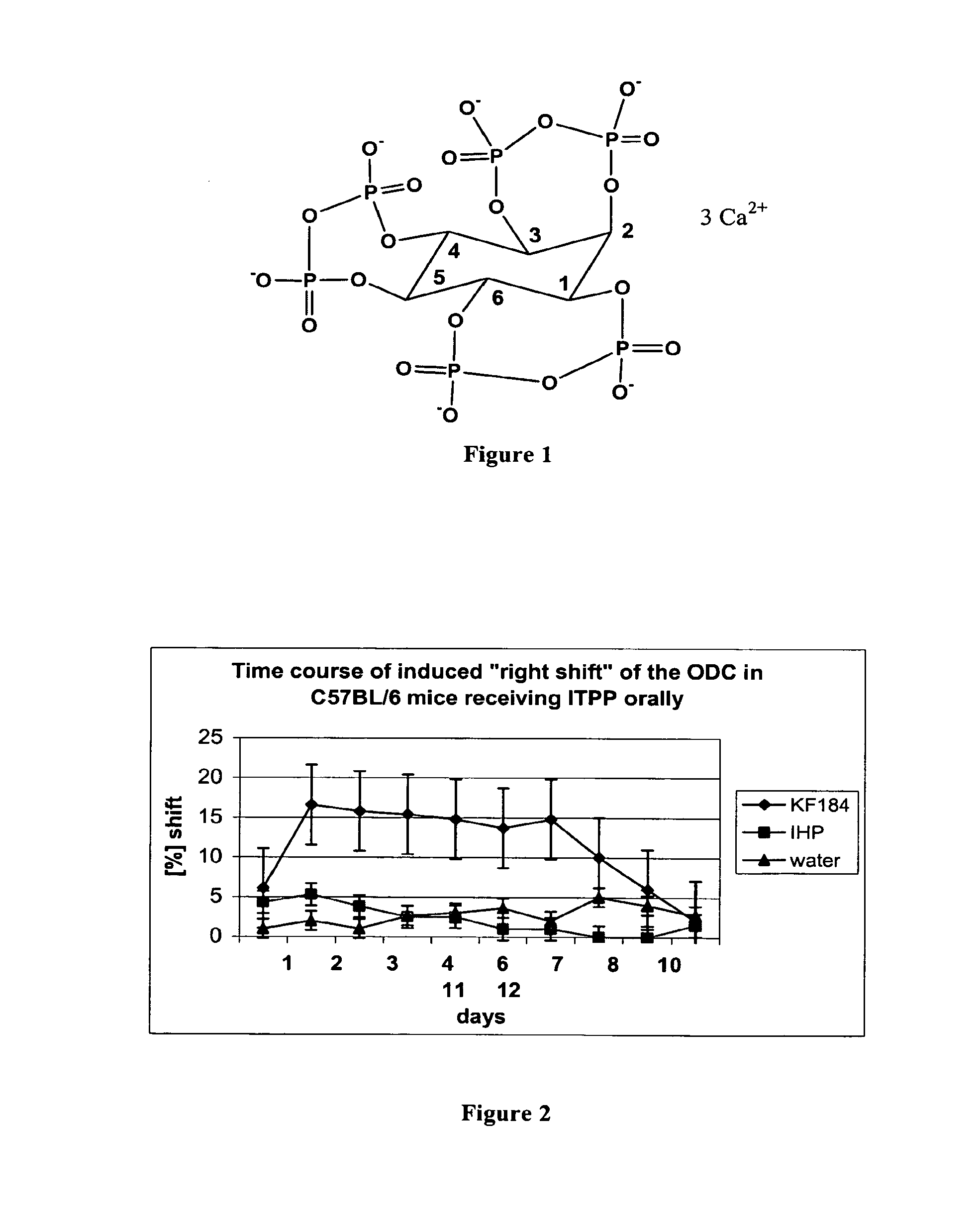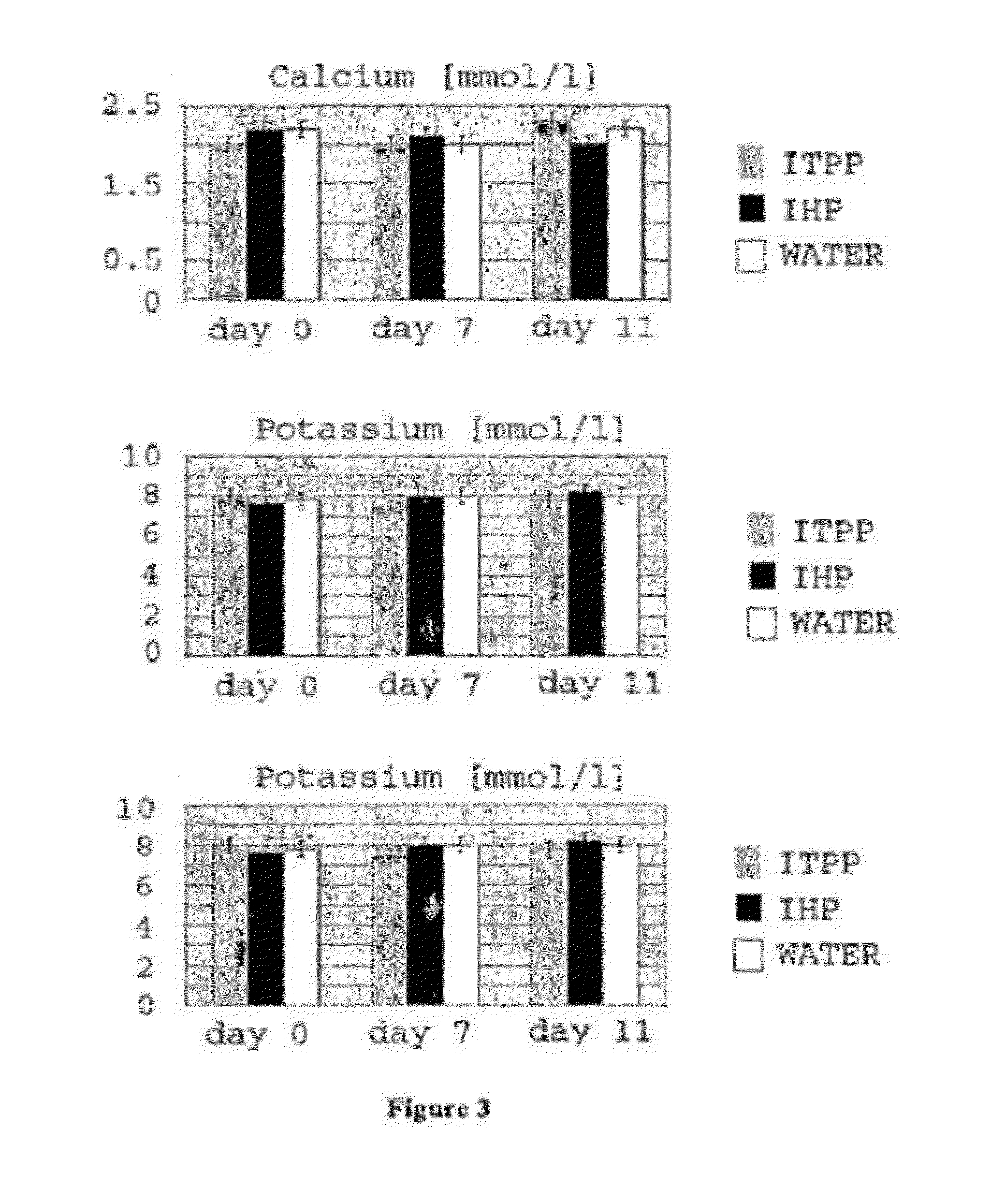Use of inositol-tripyrophosphate in treating tumors and diseases
a technology of inositol tripyrophosphate and tumors, which is applied in the field of inositol tripyrophosphate, can solve the problems of significant hemolysis of red blood cells following treatment, poor reproducibility of ihp concentrations incorporated in red blood cells, and commercially unsuitable procedures, so as to improve the regulated delivery of oxygen and reduce the affinity of circulating erythrocytes for oxygen
- Summary
- Abstract
- Description
- Claims
- Application Information
AI Technical Summary
Benefits of technology
Problems solved by technology
Method used
Image
Examples
example 1
Induced Right Shift of the O2-Hemoglobin Dissociation Curve (ODC) in Mice (Orally Administered)
[0099]Twelve (12) C57BL / 6 mice were fed the ITPP-solution (20 g / L-concentration=27 mM, pH ˜7.0) for 4 days (up to 25 ml per 24 hrs). Three (3) control mice drank pure water, and four (4) control mice a solution of myo-inositol hexaphosphate (IHP) (same concentration and pH as ITPP). Blood was collected from all mice on day 0 (before treatment started), and on days 1, 2, 4, 6, 7, 8, 10, 11 and 12 (after treatment had started), in order to measure P50 values.
Results
[0100]ITPP was neither rejected by the mice, nor harmful to the animals.
[0101]Oral application of ITPP caused significant right shifts of P50 (up to 31%) in mice.
[0102]ITPP, when orally administered at a concentration of 27 mM, causes a right shift of the P50 value in murine circulating red blood cells (FIG. 2). There is a time lag of approximately 48 hrs before the maximum shift is attained. Maximal P50 shifts are reached between...
example 2
Induced Right Shift of the ODC in Mice
Injected Intraperitoneally
[0104]When ITPP (pH 7, 200 μl) was injected intraperitoneally in mice, the P50 values of circulating red blood cells were shifted up to 23%. FIG. 5 demonstrates that ITPP was well tolerated by mice, up to a concentration of 150 mM. The level of ions, such as sodium, potassium and calcium were normal after i.p. injection. Six (6) mice were each injected intraperitoneally with 45-150 mM (=0.17-0.88 g / kg body weight) of ITPP. Means of % shift and standard deviation are shown in FIG. 5.
[0105]The concentration dependence of the P50 shifts induced by ITPP is an additional indication that this compound crosses the plasma membrane of the red blood cells.
example 3
Induced Right Shift of the OCD in Piglets
Intravenously Injected
[0106]ITPP was also injected intravenously (IV) in piglets. A right shift of P50 was observed, when the compound was injected at a 1 g / kg body weight dose.
[0107]In order to check possible side effects of ITPP the level of calcium in the serum of the injected piglet was determined. A strong drop in the Ca2+ concentration in the animal's blood immediately after infusion indicated the possibility that ITPP, with 3 dissociated phosphate groups binds Ca2+, reducing thus its availability as free ion in the blood. One day after infusion the concentration of Ca2+ in the piglets' blood was restored to the normal value. The results are shown in Table 1.
TABLE 1Ca2+ concentration in the piglet's circulation bloodCa2+ conc.Sample taken[mmol / L]Before injection2.3810 min after completion of injection1.7324 hrs after injection2.36
[0108]Based upon this observation, a CaCl2 (equimolar to ITPP) solution was injected with the ITPP solution,...
PUM
| Property | Measurement | Unit |
|---|---|---|
| volume | aaaaa | aaaaa |
| molecular weight | aaaaa | aaaaa |
| oxygen partial pressure | aaaaa | aaaaa |
Abstract
Description
Claims
Application Information
 Login to View More
Login to View More - R&D
- Intellectual Property
- Life Sciences
- Materials
- Tech Scout
- Unparalleled Data Quality
- Higher Quality Content
- 60% Fewer Hallucinations
Browse by: Latest US Patents, China's latest patents, Technical Efficacy Thesaurus, Application Domain, Technology Topic, Popular Technical Reports.
© 2025 PatSnap. All rights reserved.Legal|Privacy policy|Modern Slavery Act Transparency Statement|Sitemap|About US| Contact US: help@patsnap.com



